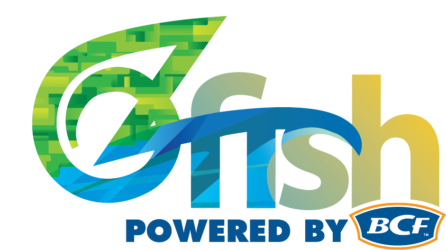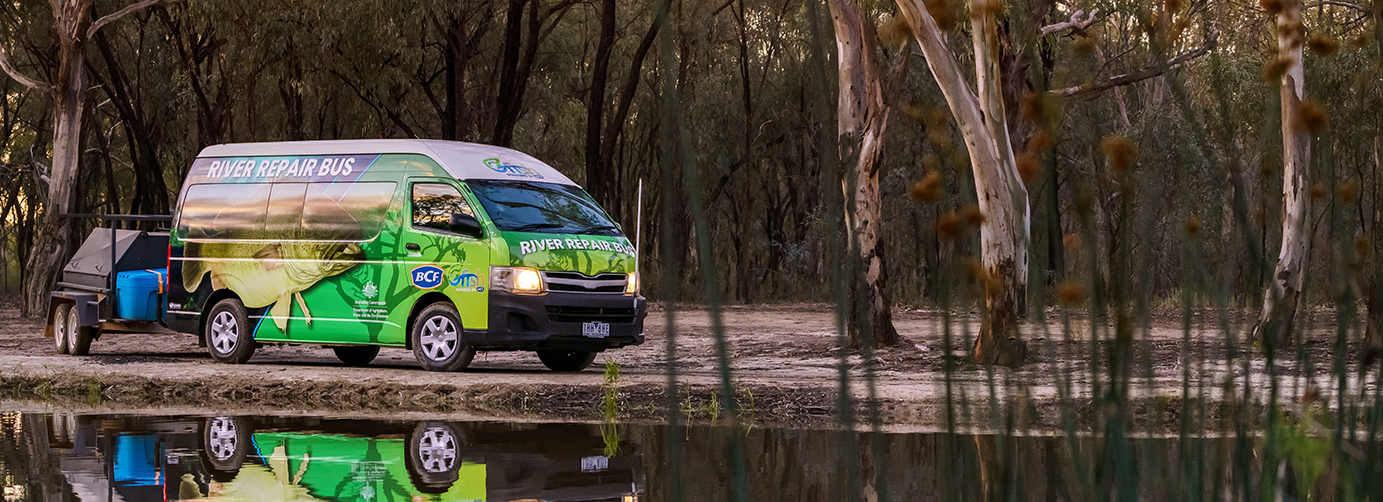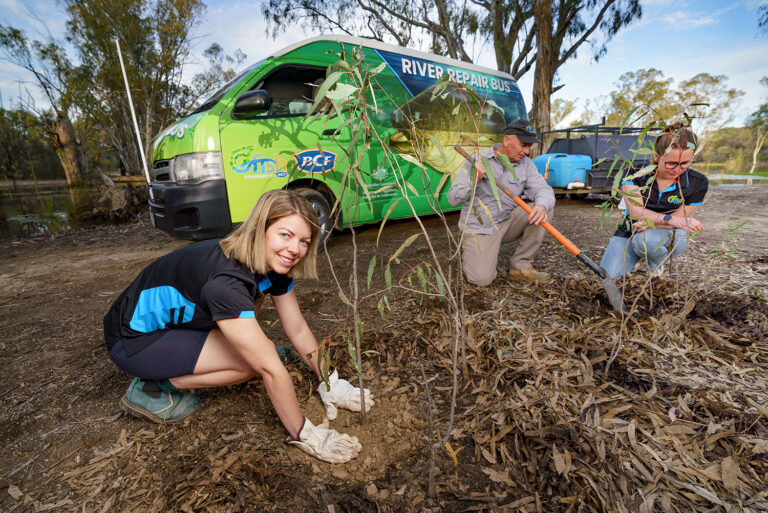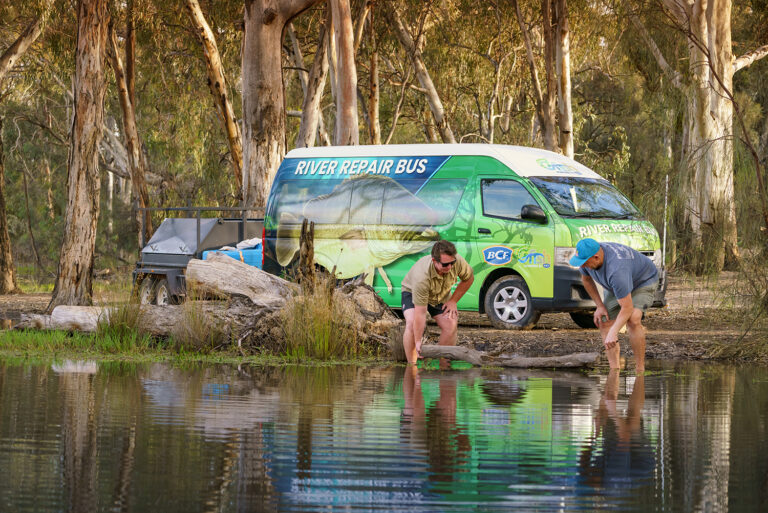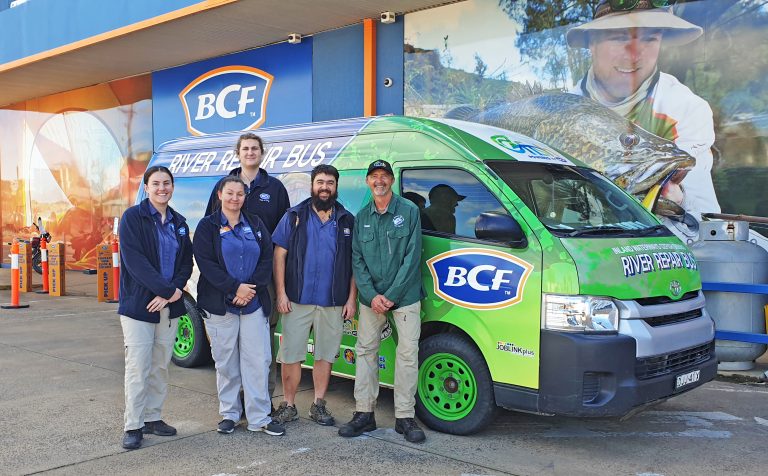In the Murray Darling Basin, our inland regional centres and towns thrive on community, and the rivers, lakes and waterholes are often the economic and recreational lifeblood of the region.
Projects
Moree River Repair Bus
Sunraysia River Repair Bus
Dubbo River Repair Bus
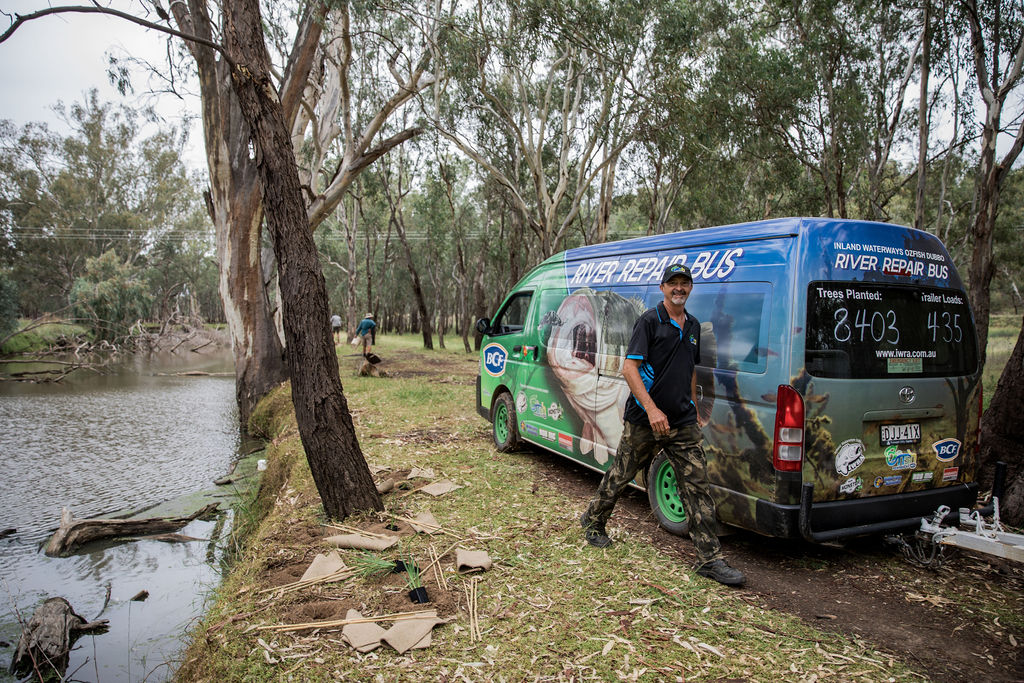
Restoring from the wrongs of the past
Many of these waterways have endured decades of neglect, with erosion and riverbank deforestation, removal of vital underwater snags, the explosion of pest species and large-scale dumping of waste scarring the region.
Consequently, the vital habitat that allows our native freshwater fish to breed and thrive is almost gone. OzFish is committed to restoring the fish habitat of our inland waterways so that iconic fish such as the mighty Murray cod can thrive once again.
So far, the River Repair Bus team have:
- Planted over 7,500 trees
- Collected 400 trailers of rubbish
- Assisted with the release of 60,000 native fish
- Supported at least 20 participants into full-time employment
- Over 100km of waterways instream habitat mapped for future resnagging projects
- Over 120 threatened and endangered native fish successfully translocated
- 58 fish habitat structures installed into waterways
- Built a community of over 70 volunteers who are accelerating the progress of fish habitat restoration throughout the Murray Darling Basin, equating to over 3,000 volunteer hours
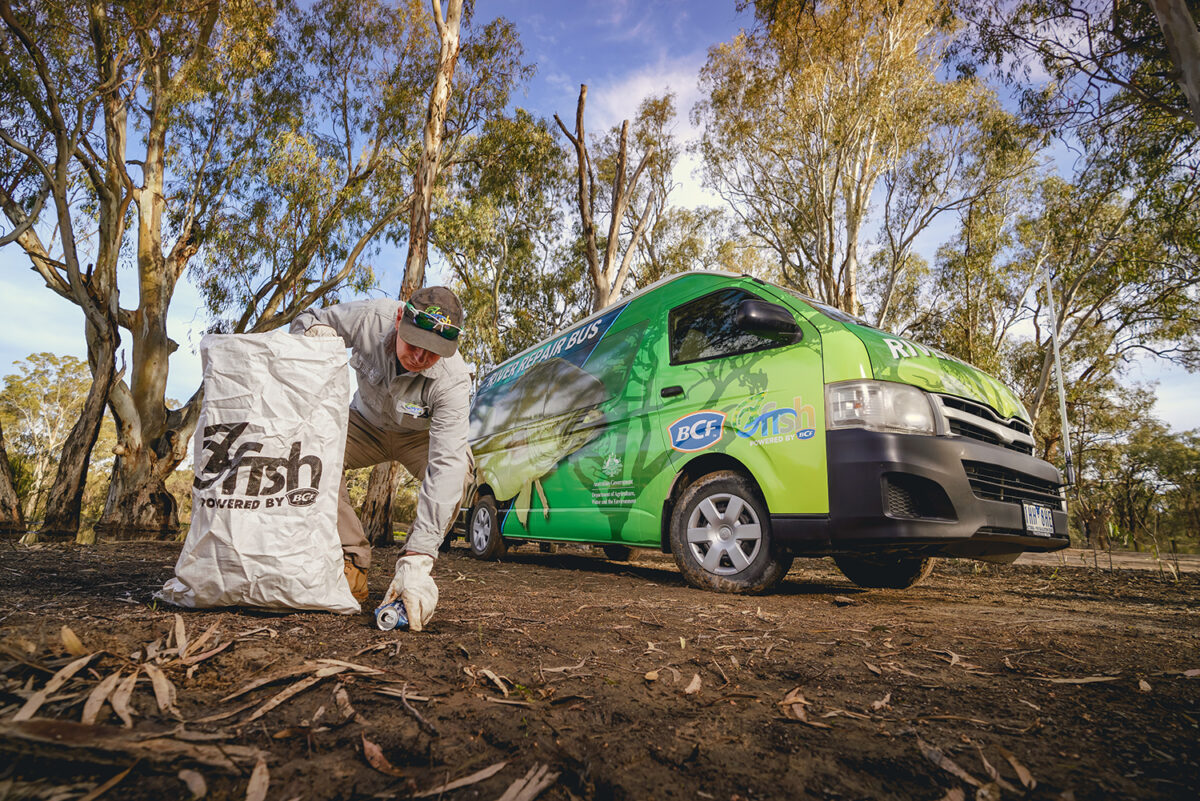
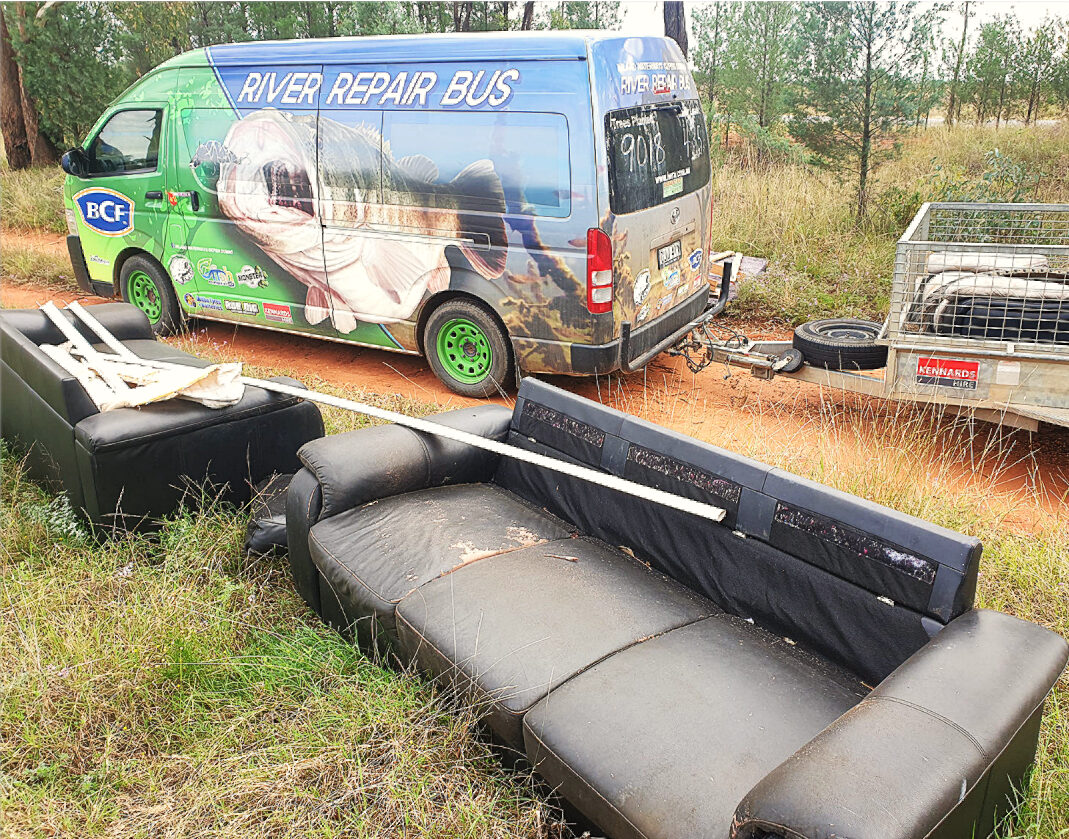
OzFish has three River Repair Buses that cover the Murray Darling Basin, based at Mildura, Dubbo and Moree, travelling ten’s of thousands of kilometres each year, engaging the passionate inland recreational fishing community to carry out fish habitat restoration projects.
The River Repair Bus initiatives are a first of their kind in Australia, designed to transport volunteers and all the heavy gear needed to implement vital habitat restoration work on not only rivers, but on our creeks, lakes, billabongs, and wetlands that help our native fish thrive.
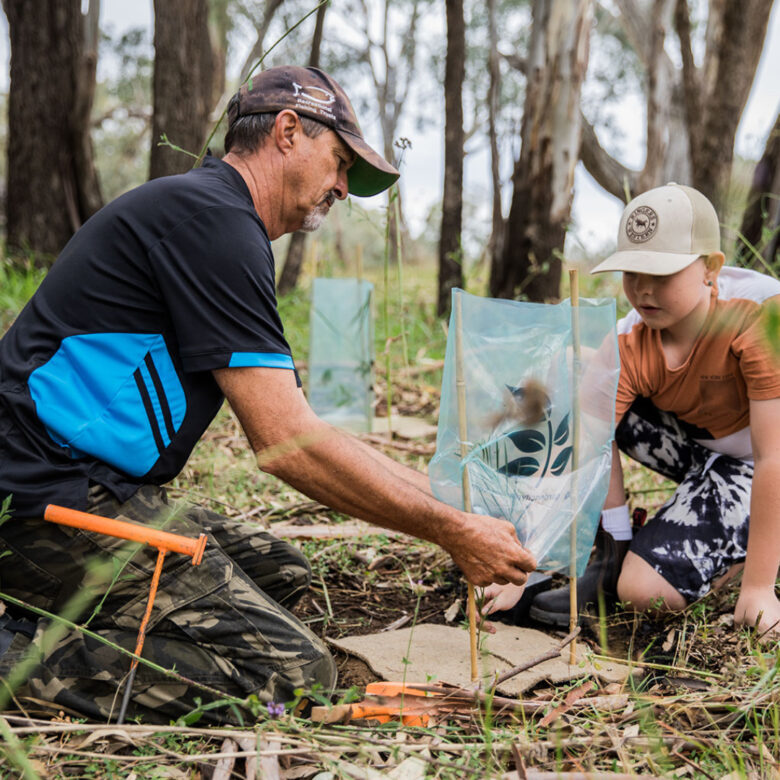
Volunteer with Us
Join our community of volunteers who share our determination to restore fish habitat across Australia.
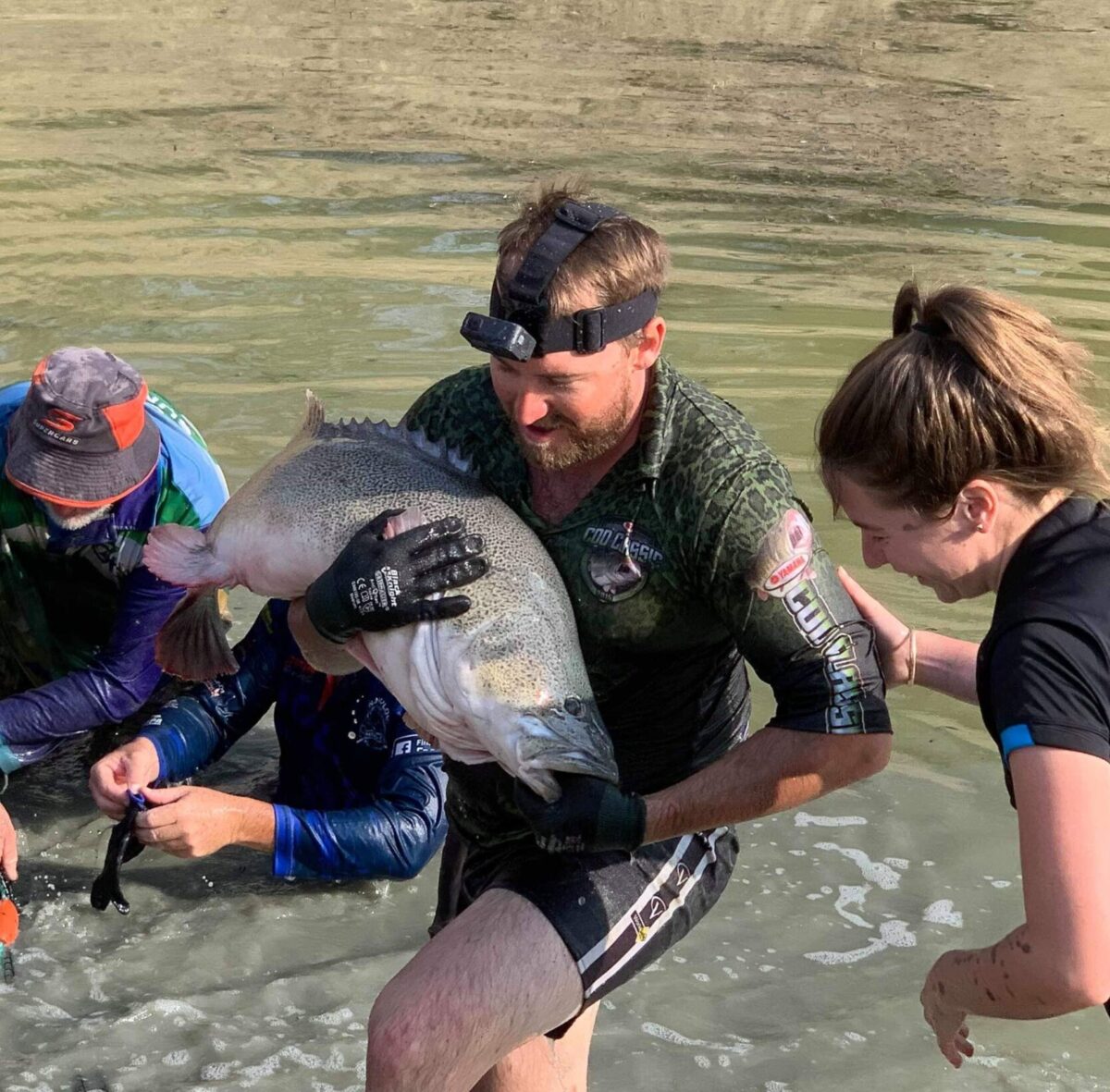
Make a Donation
Donate today to support our mission to restore our inland waterways through community-driven participation and ownership.
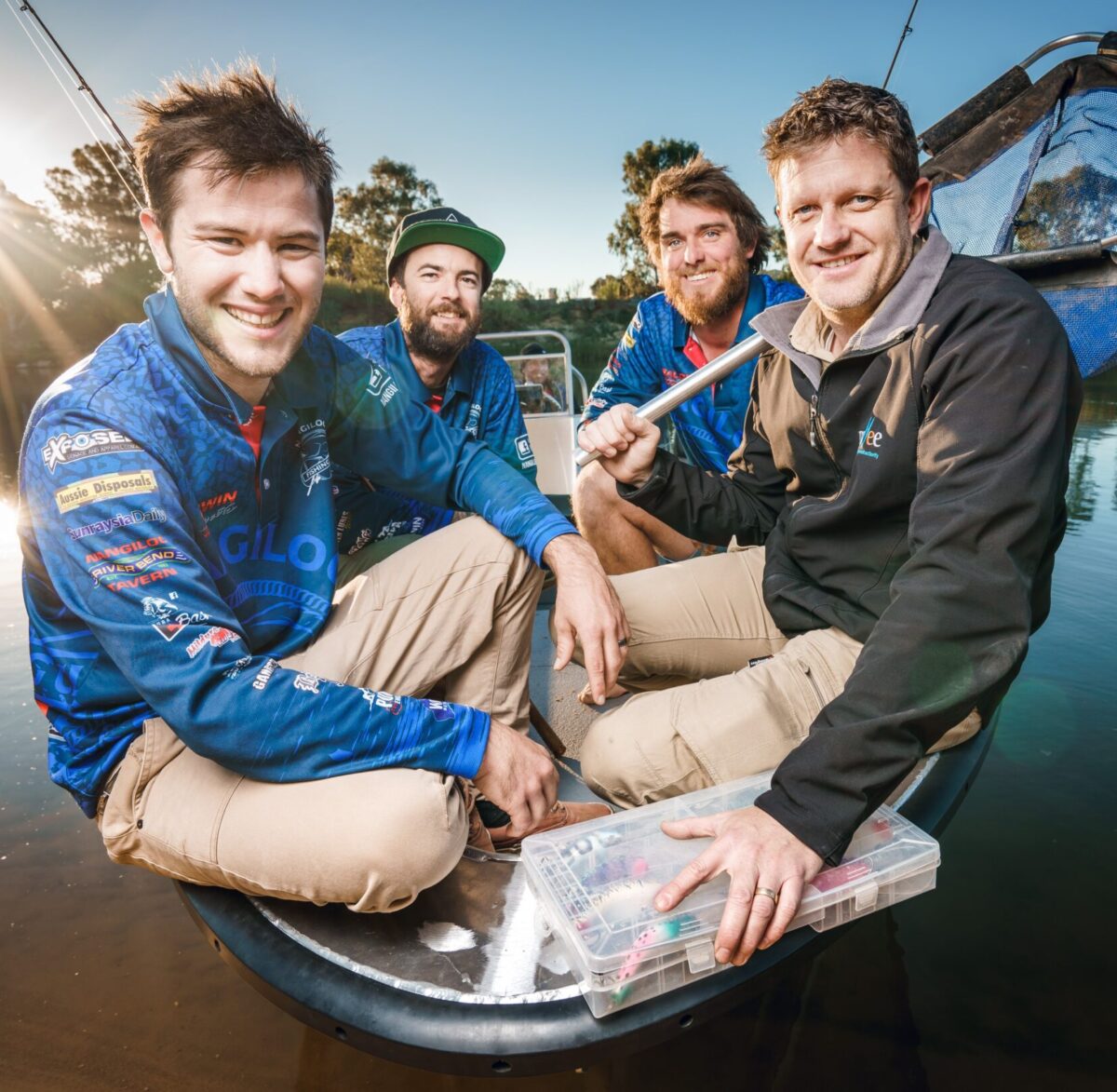
Become a Member
Help us raise funds for our restoration initiatives by becoming an OzFish member today. Learn more about member benefits!
Our inland waterways require ongoing maintenance, so both the fish that call them home and the communities that enjoy them can thrive. You can be part of giving back by making a donation to the River Repair Bus today.
The River Repair Buses provide a portable habitat restoration hub, that makes it possible to regenerate as much of a waterway’s catchment area as possible, not just those areas where humans congregate.
The ongoing success of River Repair Bus programs will rely on the continuing engagement of local stakeholders to ensure region’s individuals, groups and organisations can take ownership of the health of their waterways.
